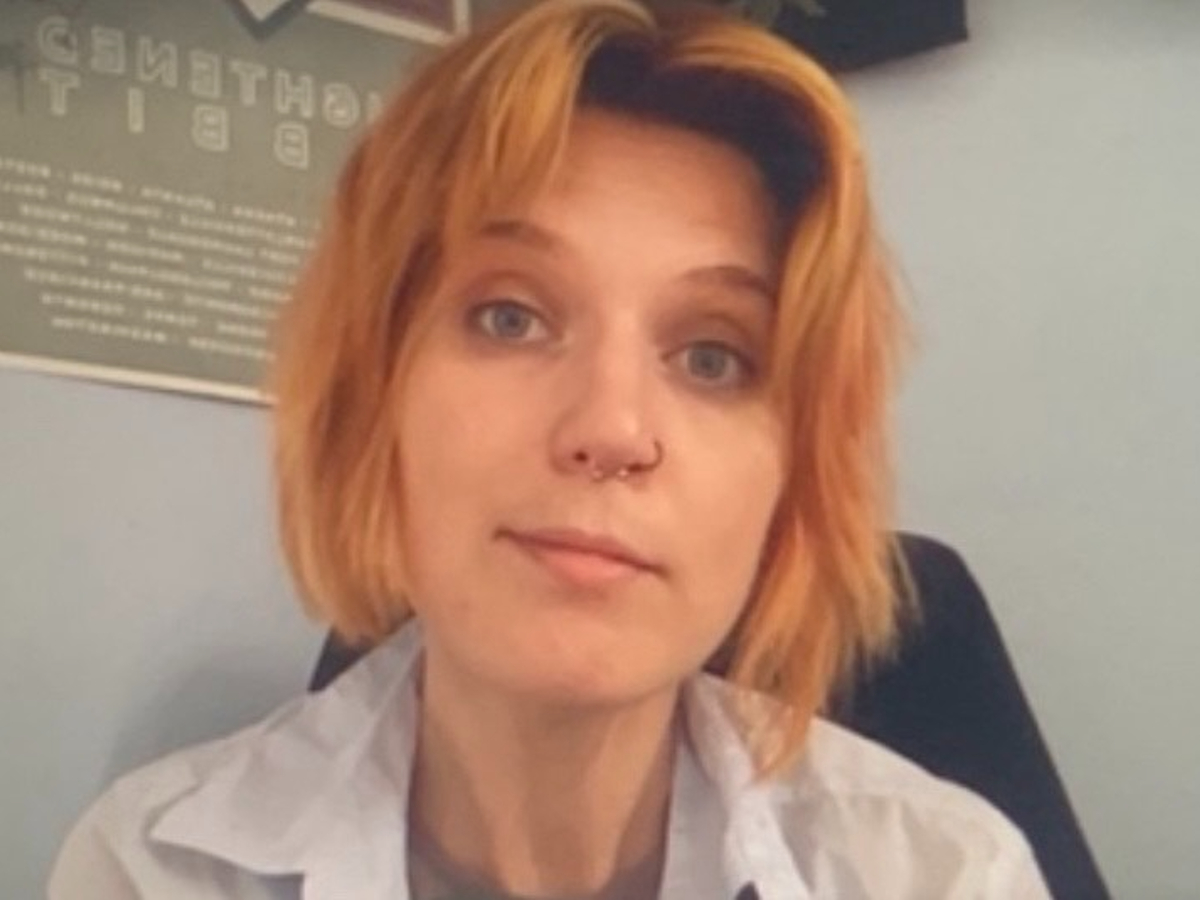Mental health tips for navigating the university application process
One of my favourite and most insightful conversations was with Anna-Louise Kidd, who recently graduated from Toronto Metropolitan University (TMU) from the Social Work program in 2023. We discussed student mental health, TMU’s support systems and the importance of being aware when in crisis. Join in on our conversation and keep reading!

As a student, Anna-Louise was involved in many TMU student wellbeing unions and groups. These groups covered topics such as substance abuse, peer support and food insecurity.
Hadiqah: What inspired you to work in the field of mental health, especially in relation to university students?
Anna-Louise: While I was in Social Work, one of the main guiding principles was wanting to understand how mental health is something that gets in the way for a lot of students throughout their education. From my own experience, I really had to take some time for my own struggles with mental health before I was ready to start my studies.
Every year there are students enrolled in school before mental health crises get in the way. When there are not enough accessible services, that can be a reason for a lot of folks dropping out. School becomes very low on their list that makes it hard to focus on and prioritize. So I really want to show up for students with these concerns, and make sure that as a university we do everything we can to make those services accessible on campus.
H: What are some tips you have for mental wellbeing for prospective students and applicants during the university application process?
A: Some people might have some stigmatized ideas about asking for mental health support and think that the relationship they have with their mental health is normalized. Ask yourself to reflect on the messages you've internalized about your own relationship to mental health. Is help for mental health something that you've thought about? What would good mental health mean for you specifically?
If you’re anticipating stress, think about this ahead and make a plan while reflecting what stresses have come up before and in your life. If you're stressing about the uncertainty of applications, something that helps me is noting down my options. Say I got into this program — then that’s great. So why don’t I just plan ahead for that option? Then ask yourself what you’re going to need in regards to resources on campus. TMU has a Student Wellbeing department that has a lot of different services so do some research and look out for what would be helpful to you, like academic advisors.
I also recommend giving yourself permission to feel those feelings. First of all, it's okay to feel stressed and anxious. Give yourself compassion for feeling this way. It's not fun. But you can look at it and you can say, “Okay…did I do everything that I possibly could in this application? And am I happy with it?” And if the answer to that is no, then you can even start to use that as, “What can I control and do from here? Or maybe if it doesn't go as planned and I don't get into this program, what can I do differently?”
Speaking of my own experience, I got a conditional acceptance the first time that I applied to TMU, and I actually wound up having that acceptance revoked. I then reapplied an entire year later than I originally planned to. So things don't always go according to plan. But one of the best things to know is that what you hoped for doesn’t always go the way you planned. When I was in this state, I began to think about how I can strengthen my application next year. Whether that's volunteering, gaining some experiences or a new job.
We sometimes have scripts in our heads and think at a certain age specific things are supposed to happen. Maybe you believe that you’re supposed to have a four year long university degree because that’s what people say, right? It’s important to know that there's no age attached to how long something is supposed to take or be done and everyone's journey is going to be different.

Anna-Louise said that a really important skill they developed through the application process was resiliency.
Photo: Tim Gouw via Pexels (external link, opens in new window)
H: How can students navigate anxiety when it comes to choosing where to apply? How about when they're waiting to hear back?
A: I can relate since I’ve had three different application processes. It was helpful to speak to people in the fields that I was interested in going to and ask about their experiences in my [desired] program. So, definitely identify the students in your program of interest [and ask] about what they liked and didn't like.
If you don’t know what you want to do, I encourage you to volunteer and get involved in your communities. I personally have always been passionate in seeking education, although I see students almost resentful of their school experience where they just see it as a means to an end. But for me, giving myself this time of exploration was such a huge gift. I encourage students to really get over their curiosity [in their interests]. It’s important to know what school, program and experience is really going to give you the best engagement so you make the most of your time while doing it. So using this period as a time where you explore a field that you really want to learn about, how it will prepare you for work and suit your learning habits is important.
H: What advice do you have for these students when taking the first step towards seeking support?
A: You deserve to have help and support — just pushing through and ignoring the challenges might catch up to you. You really need to enjoy your experience, and if you’re not putting yourself first, you’re basically just trying to survive. And we aren’t learning or performing properly when we’re in survival mode. Just get familiar with what supports are available and always be aware that it’s there when you want it.
H: TMU is #1 for Student Support in Ontario. What mental health services and programs are offered at TMU to ensure the wellbeing of students? What has been your personal involvement with these supports?
A: I was involved in Substances + TM(U), a week of different events and discussions focused on creating a supportive and non-judgmental space for students. Individuals engage in meaningful conversations around substance use and their relationship to it, and they’re actually hosting another event this year.
TMU also has a very well-developed Student Wellbeing department and this includes the counseling centre on campus featuring psychotherapy, the health promotion program, workshops and peer support. Peer support is a place where individuals share their own experiences in mental health. For me with mental health struggles and disability, sharing what these experiences were like with other students fosters hope and connections. I preach that students with disabilities can do whatever and still succeed.
As a student I tried to utilize as many supports as I could. I worked as a peer editor for Student Life and Learning Support. In this program, you can get someone to read over your papers with you, gain strategies for learning, and seek support to build up your learning capacity. I volunteered with the Centre for Safer Sex and Sexual Violence (external link, opens in new window) union which is a support line for survivors of sexual assault — it’s a service that I’ve used and offered to others as well. Also, there are food programs that the Good Food Centre (external link, opens in new window) union provides to adjust food insecurity on campus.
Thank you for speaking with me Anna-Louise! They concluded by saying, “I'm so passionate about this area since it's all about getting students connected with each other. That's what we're trying to do with the career support program. So if there are folks in your circle that are really needing support and may have a stigma about [seeking help], then reach out. It's not counselling, you're just going and talking to other students who also are dealing with similar things.” Knowing that Student Life and Learning Support fosters community and shares stories between students’ struggles, I’m definitely going to check it out.
Bye for now,
Hadiqah